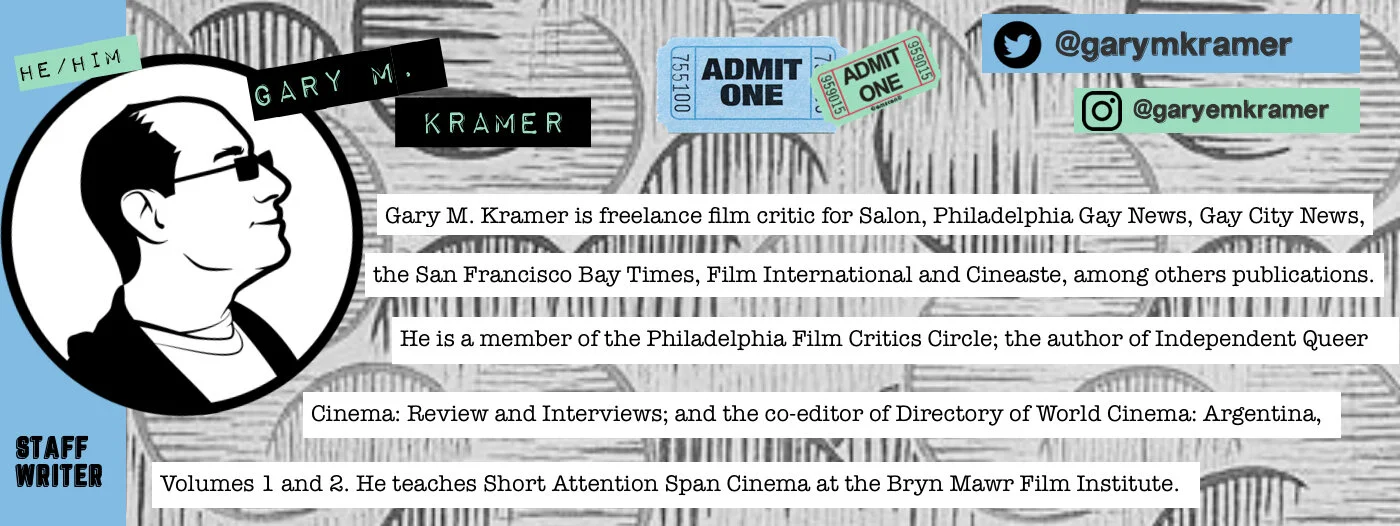TIFF 2021: COMALA takes an intimate approach to a Mexican border story
Written and Directed by Gian Cassini
Runtime: 98 minutes
Premieres at TIFF on September 11th
by Gary M. Kramer, Staff Writer
Gian Cassini’s captivating debut feature documentary, Comala, tells a micro story about his family to reveal a macro story on the Mexican drug wars. The filmmaker grew up with his mother, who was separated from Gian’s dad, Jimmy, shortly after Gian was born. Jimmy started another family in Tijuana, and Gian visited his dad until he was a teenager, but things ended badly. With Comala, Gian investigates his estranged father, a small-time hitman.
Gian’s strategy is to meet his relatives, who all provide information about his father. His mother is, perhaps, in denial about Jimmy’s “career.” His grandmother, Mavis, shows Gian old family photos, and talks about Jimmy’s childhood—how he didn’t like school, and later regretted he didn’t get a good education. His uncle Daker, explains that Jimmy liked comics with guns, and wanted to be a gunman. His half-sister, Nanette, talks with Gian about his half-brother Tony, who got involved with the criminal world, too. As Gian seeks to learn about the origins of his family name, Cassini, he meets his grandfather, in San Antonio, who talks about his son and shows off his gun collection.
The impact of these meetings slowly reveals truths about Gian’s father, and there are some fascinating moments, as when his mother talks candidly about her relationship, or Gian discovers what lead to his father’s murder. There are also some fantastic images of photos of his father reflected on Gian’s face, illustrating the connection between father and son.
Comala also explores bigger issues. The filmmaker uses the backdrop of the drug war in Mexico to discuss how it drives the economy, such as the drug dealers who “reinvest” in the community by putting their kids through college and creating projects (like buildings) that generate jobs. And the film addresses the inequality that forces families, like Gian’s, to work hard—some mothers abandon their children temporarily for work—or work illegally. Others emigrate to the United States in search of a better life.
But the real takeaway of the film are the intimate ideas and personal questions, like: what do we know—or don’t know—about a person? When someone in the film indicates they can’t be mad at the individual whose caused Jimmy’s death, there is an understanding because they describe the relationship they had. When Gian makes a judgmental remark, he is processing and absorbing the information he receives. Comala’s strength is to provide viewers with enough understanding to be invested in Gian’s journey. (The film’s title comes from the town featured in a novel about a man’s search for his father).
Watching Gian, who has no children, interact with his nephew, James (to whom he dedicates his personal film), may provide the most revealing moments. Gian has made his documentary in an effort to understand—and break—the family’s cycle of machismo. For Gian, who was more interested in comic books than guns as a child, he wonders why he did not become like his father. Or, more broadly, what factors in life make us who we are?
Those ideas are complex, and each family’s history can be as knotty and as complicated as Gian’s. But watching Gian unpeel this onion, and make discoveries that are challenging, is as rewarding for viewers as they are cathartic for the filmmaker.


